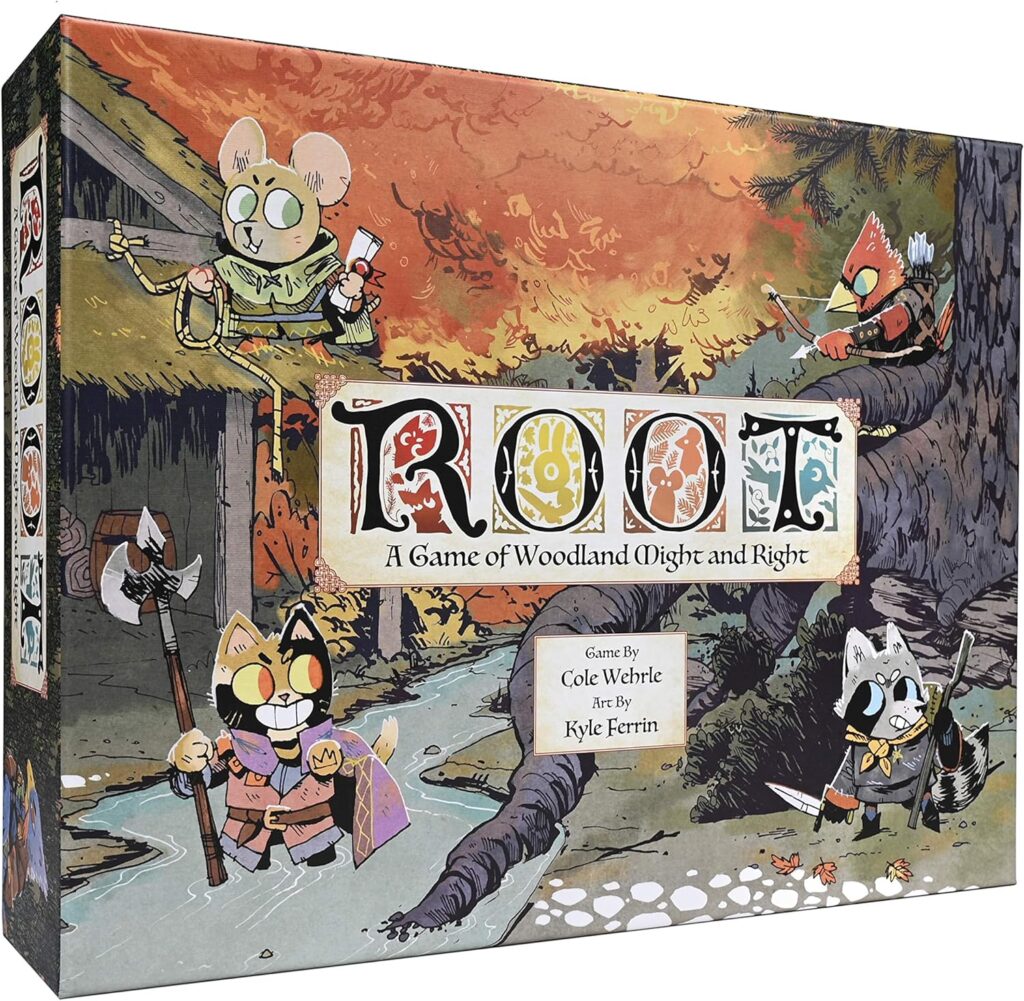Hi all,
One of the perks of the holiday season is the chance to sit down and play some games with your family. One such game I got to enjoy recently was the game Root. For those of you who are new to this game, it takes the idea of a non-symmetrical game and turns it up to 11. While every faction has a similar goal, they are wildly different in how they play.
Let’s go through some of the pros and cons of the game:
Pros:
- Unique Factions: Root stands out for its asymmetrical gameplay, with each faction possessing distinct abilities, playstyles, and victory conditions. This diversity enhances replayability, as each game offers a new and engaging experience depending on the chosen factions.
- Deep Strategy: The game offers a high level of strategic depth, requiring players to adapt their tactics based on the evolving dynamics of the game. The interplay between the factions, coupled with the variable game board, encourages thoughtful decision-making and strategic planning.
- Beautiful Art and Design: Root boasts stunning, whimsical artwork by Kyle Ferrin that adds to the game’s charm. The vibrant illustrations contribute to the immersive experience, making the game visually appealing and attractive to players.
- Dynamic Player Interaction: Root encourages player interaction through negotiation, alliances, and conflict. The shifting alliances and competitive nature of the game keep players engaged and create a dynamic environment where every turn holds strategic importance.
- Scalability: The game is designed for a wide player count, accommodating 2 to 4 players in the base game and expanding with additional factions for larger groups. This scalability makes Root adaptable to different gaming preferences and group sizes.
Cons:
- Steep Learning Curve: Root has a significant learning curve, especially for new players. Understanding the unique abilities and interactions of each faction can be challenging, and it may take a few plays for players to grasp the intricacies of the game fully. It took me more time to learn how to play the game then to actually play it.
- Potential for Imbalance: Achieving balance in asymmetric games is inherently challenging, and Root is no exception. Some factions may have a steeper learning curve or be more challenging for certain players, potentially leading to imbalances in skill levels among participants.
- Lengthy Playtime: The game’s duration can be longer than expected, particularly for new players or groups still learning the rules. Longer playtimes may not be suitable for all gaming sessions, and it’s essential for players to allocate sufficient time for a complete game.
- Minimal Theme Integration: While the game’s mechanics are solid, some players may find that the theme feels somewhat abstracted from the gameplay. The narrative elements are present but may not be as deeply integrated as in other thematic board games.
- Dependency on Player Interaction: While player interaction is a positive aspect for many, those who prefer a more solitary gaming experience may find Root’s reliance on negotiation and alliances to be a drawback. The game’s enjoyment is heavily dependent on the group dynamics and the willingness of players to engage with each other.
In summary, Root is a visually stunning and strategically rich board game that offers a unique asymmetrical experience. Its deep strategy, dynamic player interaction, and scalability make it a standout title for those who enjoy complex and competitive games. However, the steep learning curve, potential for imbalance, lengthy playtime, minimal theme integration, and the reliance on player interaction may be considerations for individuals with different gaming preferences.
And remember, Frontline Gaming sells gaming products at a discount, every day in their webcart!

